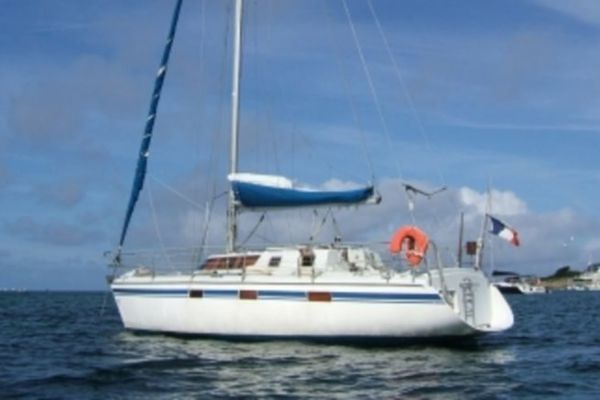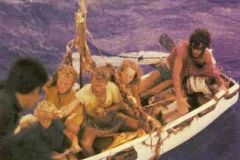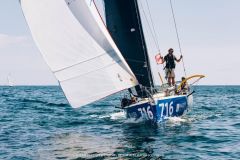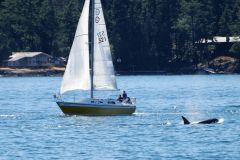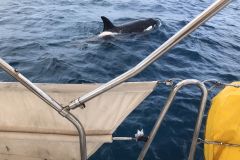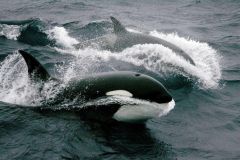A Bi-loup 102 was targeted by killer whales just two miles off the Spanish coast, off Deba. A pair of French sailors on board immediately launched a distress call. This event, which took place in an area previously little affected by this phenomenon, raises questions about the evolution of the behavior of these cetaceans.
Rapid intervention by Spanish rescue services
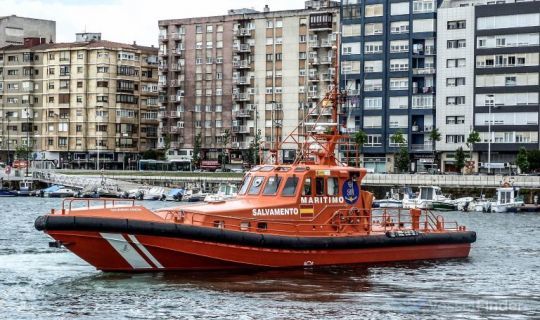
The couple's request for assistance was immediately relayed by the Spanish rescue services. The Salvamar Orion was dispatched from the port of Getaria and located the unit in distress two miles offshore. The crew, shocked but unharmed, were transferred to the rescue vessel. The yacht was then taken in tow, unable to maneuver on its own due to damage to the steering system.
A robust production yacht, despite targeted damage
The Bi-loup 102, built in the 80s, is a cruising yacht renowned for its robustness. This keelboat is fitted with a skeg to protect the rudder. During the attack, the killer whales repeatedly struck the stern, causing a partial break in the skeg and visible cracks at the base of the rudder.
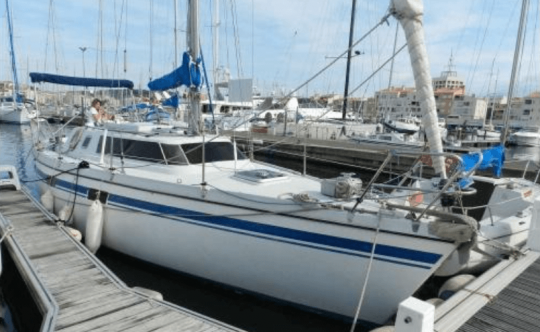
The damaged area visible on dry land at the port of Getaria is evidence of strong lateral stress, possibly due to traction or blows from the cetaceans' jaws or flukes.
A geographically expanding phenomenon
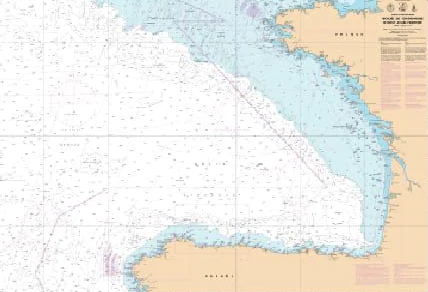
Long confined to the Straits of Gibraltar and Galicia, the aggressive (or playful) behavior of certain groups of orcas is now moving northwards. This incident in Basque waters is one of the most northerly recorded on the Iberian Atlantic coast. This progression towards the Bay of Biscay raises the question of territorial adaptation or the dispersal of juvenile groups in search of new behavioral interactions.
Technical solutions are still limited
Current recommendations in the event of interaction with killer whales are behavioral: cut all propulsion, stop the boat and do not interact. However, several yachtsmen are already testing passive protection devices (chain curtains...), sound repellents mobile lures) with no scientific validation to date.
A need for coordination between states and boaters
This event highlights the need for enhanced maritime surveillance of wildlife interactions. Cross-border coordination between rescue centers, researchers (GTOA, Orca Iberica) and nautical federations could enable a real-time alert system to be set up, or risk zones to be mapped. France, Spain and Portugal are directly concerned by this development.
The attack on the Biloup 102 off Deba marks a turning point in the geography of interactions between killer whales and sailing boats. At a time when amateur and experienced sailors alike are using these routes en masse during the summer months, it is becoming essential to better inform, better equip and better coordinate prevention actions. For cruising sailboat owners, this phenomenon is no longer a marginal issue, but one that must be taken into account when preparing for coastal sailing in the Atlantic.

 /
/ 